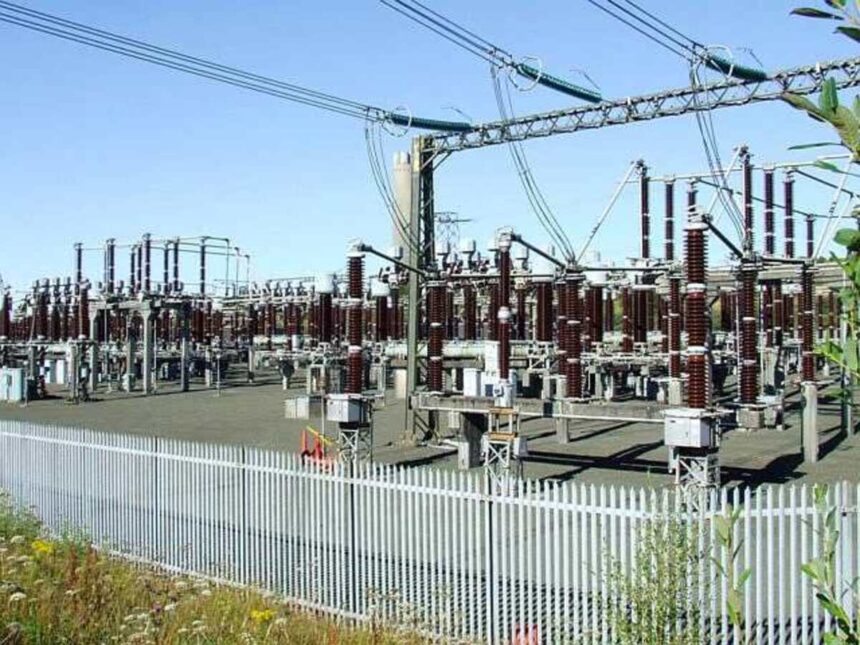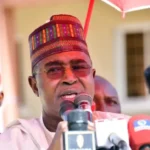The Nigeria Youth Forum (NYF) has lamented Nigeria’s persistent power sector woes and underperformance, calling for the revocation of licences of underperforming electricity distribution companies (DisCos).
The group urged President Tinubu to invite credible investors with the technical expertise and financial capacity to rescue the country’s power sector woes.
NYF made the call amid growing public dissatisfaction over the persistent inefficiencies in Nigeria’s electricity supply and the widely criticised privatisation model that, according to stakeholders, has failed to deliver value for money to the Nigerian populace.
In a statement made available to Tribune Online in Abuja today, the National President of NYF, Comrade Toriah Olajide Filani, expressed deep concern over the sector’s dismal output.
He noted that the total electricity supplied to Nigeria’s population of over 200 million people is significantly lower than the power supply allocated to a single international airport in Europe.
According to Filani, “Compare the Amsterdam International Airport with Nigeria as a whole. The power available at that airport alone surpasses Nigeria’s entire national grid output.
ALSO READ: How Nigeria was rescued from $11bn P&ID scam – FG
“This reflects poorly on our leadership and infrastructure planning. When you also look at Jeddah International Airport and compare it to the Nigerian situation, you cannot help but feel disheartened. Nigeria claims to be the giant of Africa, yet its power generation capacity tells a different story.”
He lamented that although Nigeria currently generates about 7,000 megawatts of electricity, only about 5,000 megawatts can be distributed due to obsolete infrastructure and the failure of DisCos to invest in essential distribution materials.
This bottleneck, according to him, continued to cripple the nation’s power delivery system and frustrated economic growth.
The Forum maintained that if the country fails to address the crisis in the power sector now, it might miss its last chance to salvage the situation, adding that continuous self-deception will only deepen the suffering of Nigerians under a system that is no longer sustainable.
“The time for power sector reform is now or never. We cannot continue to deceive ourselves.
“If we can’t fix electricity now under the new Electricity Act and investment roadmap, then we may never get it right again,” Filani declared.
The Forum, however, recommended a strategic and solution-driven approach to resolving the crisis and emphasised the need for the Nigerian Electricity Regulatory Commission (NERC) to enforce a performance-based regulatory framework that holds DisCos accountable to clear benchmarks in customer service, infrastructure investment and energy distribution efficiency.
According to the NYF, licenses should be subjected to periodic reviews, adding that any operator found wanting should be replaced by more competent and transparent investors.
The NYF also proposed the creation of a DisCo Recovery Task Force with the mandate of auditing past investments and operational records of distribution companies since privatisation.
This task force, it submitted, would help identify failing operators and open the door for new players with stronger technical and financial capacity.
In addition, the NYF called on the Federal Government to empower state governments to drive subnational electricity markets by establishing a Subnational Power Autonomy Acceleration Fund.
This, it noted, would enable states to develop localised power solutions using the legal backing of the new Electricity Act.
Addressing Nigeria’s energy deficit, Filani advocated the promotion of alternative energy sources, including solar, wind, biomass, water and waste-to-energy systems.
According to him, these renewable options were not only viable but also critical to achieving energy independence.
To accelerate adoption, the NYF urged the Federal Government to introduce tax incentives, import waivers and funding support for renewable energy projects, especially in underserved communities.
Furthermore, the NYF raised concerns over the lack of transparency in billing systems and the continued reliance on estimated billing.
It advised that the government mandate prepaid metering across all customer classes and ensure that billing practices are regulated, fair and technology-driven, highlighting the importance of customer empowerment.
It proposed the development of a digital platform, an Electricity Watchdog app through which citizens can report outages, exploitative billing, and other service failures.
Filani asserted that long-term stability in the power sector depends on linking electricity planning with industrial and economic hubs.
He submitted that by ensuring reliable power supply to manufacturing and agro-processing zones, the government can unlock job creation and support inclusive growth.
This, he stated, would justify the economic cost of electricity reform while reducing Nigeria’s dependence on generator-powered businesses.
WATCH TOP VIDEOS FROM NIGERIAN TRIBUNE TV
- Let’s Talk About SELF-AWARENESS
- Is Your Confidence Mistaken for Pride? Let’s talk about it
- Is Etiquette About Perfection…Or Just Not Being Rude?
- Top Psychologist Reveal 3 Signs You’re Struggling With Imposter Syndrome
- Do You Pick Up Work-Related Calls at Midnight or Never? Let’s Talk About Boundaries






